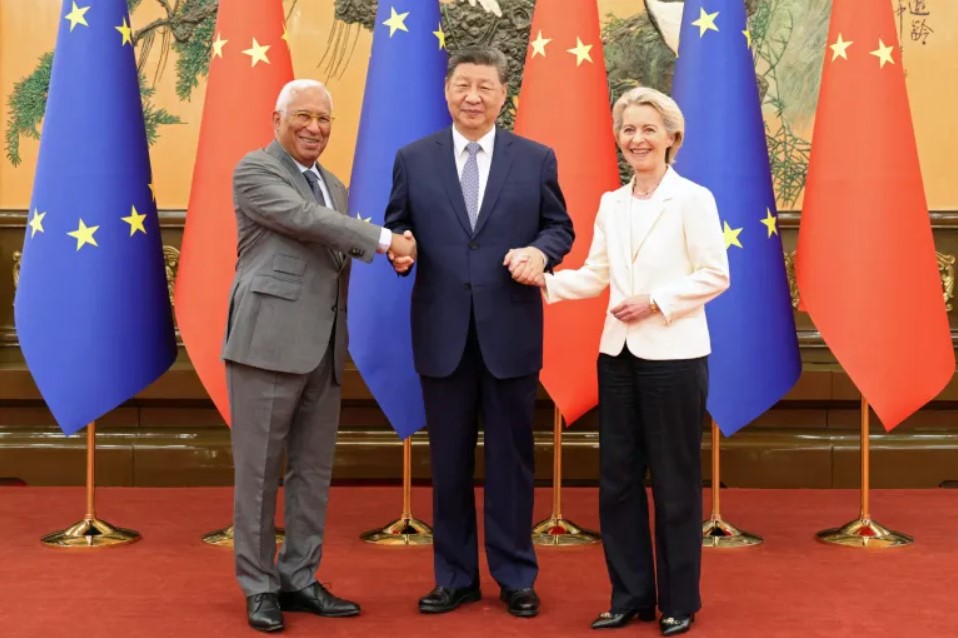China’s attempt to maintain a dual position — supporting authoritarian regimes while seeking deep economic and technological ties with the EU — is becoming unsustainable. Under increasing pressure from security, geopolitical, and value concerns, the EU is reassessing its approach to Beijing, primarily triggered by China’s support for Russia amid its full-scale war against Ukraine, reports RLI.
China’s growing ties with authoritarian states like Russia, Iran, North Korea, and Venezuela challenge its image as a neutral international player. Beijing’s refusal to condemn Russia’s invasion, expanded trade with Moscow, and anti-Western narratives undermine European security. China also strengthens relationships with isolated regimes by supplying surveillance tech, arms, and energy investments, raising concerns about exporting authoritarian governance models.
The EU is shifting from cautious pragmatism to a tougher confrontational stance, emphasizing strategic risk reduction, supply chain diversification, and less dependence on China in critical sectors such as AI, pharmaceuticals, and rare earth elements. The EU now links economic integration inseparably with values and security, reacting to human rights abuses in Xinjiang, Hong Kong, and pervasive digital surveillance.
Public opinion in Europe has shifted significantly, with growing distrust toward China due to COVID-19, the war in Ukraine, and repression in Hong Kong. As a result, EU-China relations are becoming more transactional and conditional.
Analysts believe China must choose: adapt to international norms or deepen ties with authoritarian states, risking losing its ambitions to be a global Western partner. Short-term cooperation on climate and trade may persist but under strict controls.
The risk of open conflict between the EU and China rises due to China’s support for Russia, cyber espionage, and Taiwan tensions, potentially triggering sanctions or strategic decoupling. The EU’s “risk reduction” policy is now official.
From the Western alliance perspective, especially the US, China’s cessation of support for Russia is critical. Chinese trade and technology enable Russia to evade sanctions and prolong conflict. Ending this support could hasten Russia’s economic exhaustion and promote a just peace.
China’s tacit backing of aggression violates international law and undermines global order. Preventing future sovereignty violations, including over Taiwan, depends on persuading China to change course. The growing Moscow-Beijing axis poses strategic dangers to the US, EU, and democratic partners.
The EU and US share threat assessments of China’s strategic ambiguity. Europe seeks strategic autonomy while maintaining close coordination with the US and G7 countries. Stopping China’s support for Russia is vital to preserving a rules-based international order.
Analysts call for the EU to craft a clear, value-based China strategy with realistic economic goals, stronger US-Asia ally coordination (Japan, South Korea, India), and internal unity to prevent Beijing’s exploitation of divisions.
China’s dual role as an authoritarian supporter and a partner to liberal democracies is no longer viable. The EU, in geopolitical awakening, moves to a firmer, principled position: China must choose between being a global partner or an authoritarian bloc leader — it cannot be both.



















